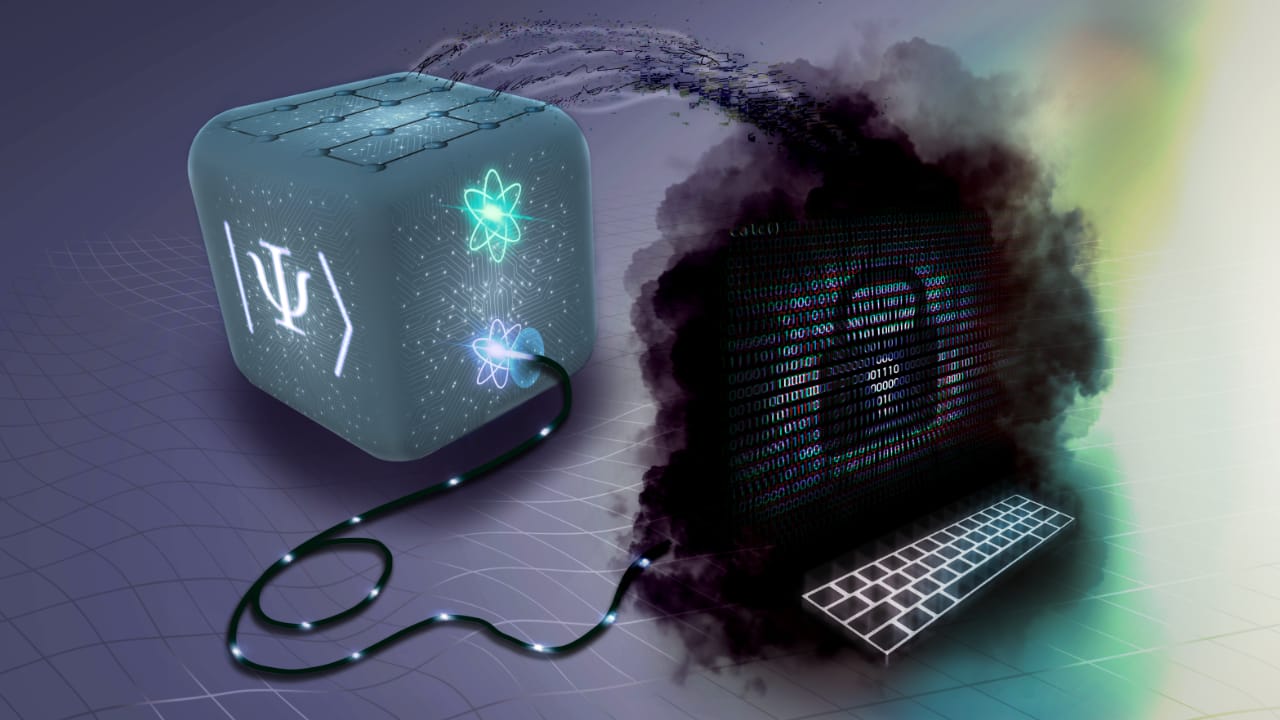
The full power of next-generation quantum computing could soon be harnessed by millions of individuals and companies, thanks to a breakthrough by scientists at the Oxford University Physics lab.
Several leading providers of cloud-based services, the likes of Google, Amazon, and IBM, already separately offer some elements of quantum computing. Safeguarding the privacy and security of customer data though is a vital precursor to scaling up and expending its use, and a new study by researchers at Oxford University Physics addresses these challenges.
In a new study published in the US scientific journal Physical Review Letters, the Oxford team detail their use of an approach dubbed “blind quantum computing”, which connects two totally separate quantum computing entities – potentially an individual at home or in an office accessing a cloud server – in a completely secure way. And rather importantly, this new method could be scaled up to large quantum computations.
“Using blind quantum computing, clients can access remote quantum computers to process confidential data with secret algorithms and even verify the results are correct, without revealing any useful information. Realising this concept is a big step forward in both quantum computing and keeping our information safe online,’’ said study lead Dr Peter Drmota, of Oxford University Physics.
To make this happen, the researchers created a system comprising a fibre network link between a quantum computing server and a simple device detecting photons, or particles of light, at an independent computer remotely accessing its cloud services. This allows so-called blind quantum computing over a network. Every computation incurs a correction which must be applied to all that follow and needs real-time information to comply with the algorithm. The researchers used a unique combination of quantum memory and photons to achieve this.

Experiments on quantum computing in the Beecroft facility, Oxford University Physics
Credit: David Nadlinger, Oxford University Physics
There’s lots of stuff like this happening at the moment, with the goal to ensure that users can pass data into the cloud and, for example, Large Language Model AIs, which can then work o even sensitive material without the LLM ever knowing what it was doing. Fully Homomorphic Cryptography is just one technique that can do mathematical computations on encrypted content without decrypting it, allowing for completely confidential data exchange
Quantum computing is developing rapidly, paving the way for new applications which could transform services in many areas. It’s going to be like the development of genAI, just potentially faster. However, it currently requires controlled conditions to remain stable and there are definite concerns around data authenticity and the effectiveness of current security and encryption systems.
But the results of this research at least could ultimately lead to the commercial development of plug-in devices that can help to safeguard data when people are using quantum cloud computing services. And, as is the way of these things, increase encryption levels for many more use cases as well.
Tags: Technology News Quantum Computing


Comments